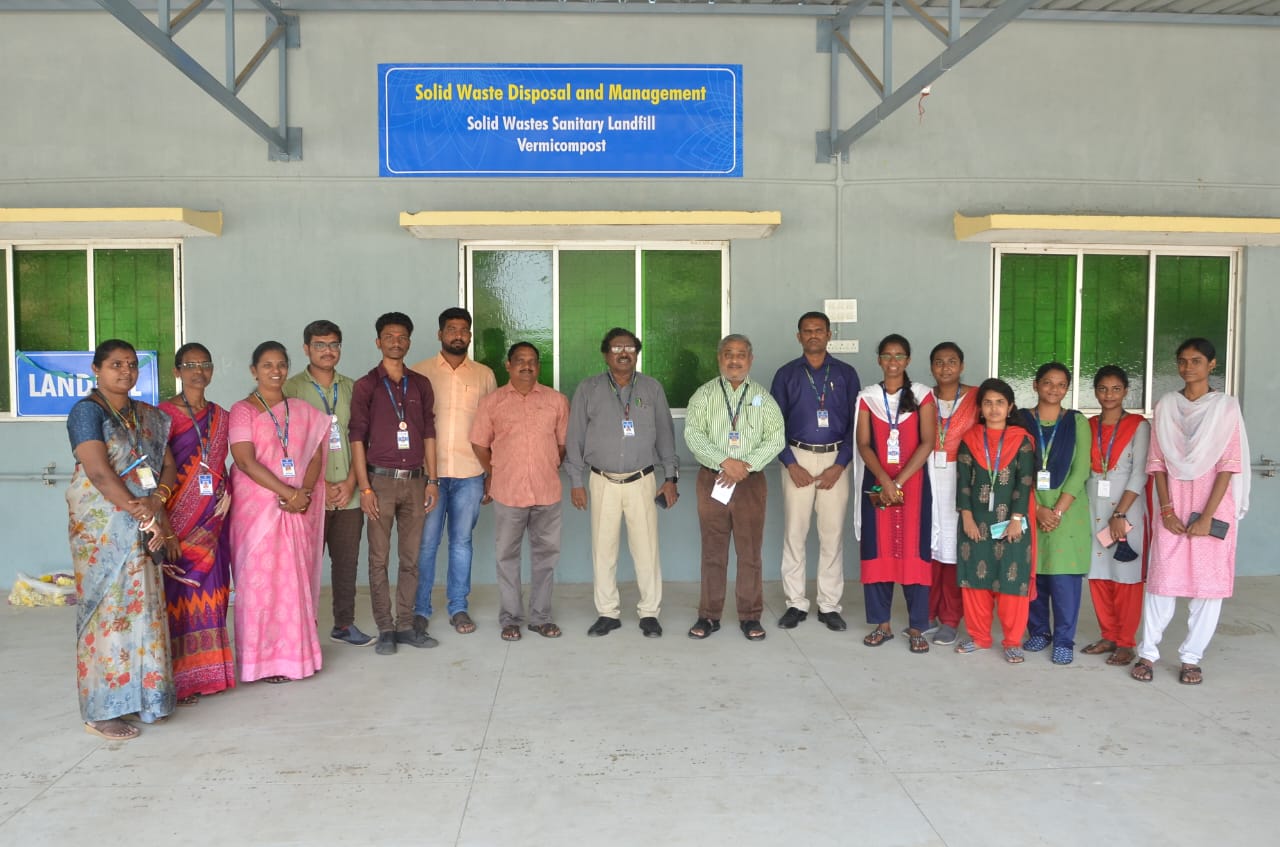


Solid Waste Management (Vermi Compost) Carried out by UBA Sairam In the college premises to promote solid management among the cleaning staff of our institutions , which can be their second income by selling these composts to near by areas.
Vermi composting is an eco-friendly method of managing organic waste by utilizing earthworms. It involves the decomposition of organic waste materials through the digestive activities of earthworms, resulting in the production of nutrient-rich compost. Here is a general description of the vermi composting process:
Setup: A suitable container or composting system is chosen to hold the organic waste and earthworms. This can be a bin, wooden box, or specialized vermi composting system. The container should have proper aeration and drainage to maintain a healthy environment for the worms.
Bedding: A layer of bedding material is added to the container. Bedding materials provide a habitat for the worms and help maintain moisture levels. Common bedding materials include shredded newspaper, cardboard, straw, or coconut coir.
Introduction of worms: Eisenia fetida, commonly known as red worms or red wigglers, are the most commonly used worms for vermi composting. The worms are introduced to the bedding material and allowed to settle in.
Adding organic waste: Organic waste such as fruit and vegetable scraps, coffee grounds, tea leaves, and yard trimmings are added to the container. It's important to avoid adding meat, dairy products, oily foods, and non-biodegradable materials.
Maintenance: The vermi composting system requires regular maintenance. It's crucial to keep the compost moist but not waterlogged. The temperature should be monitored to ensure it remains within the suitable range for the worms (ideally between 18-27°C or 64-80°F).
Feeding the worms: The worms consume the organic waste, breaking it down through digestion. It's essential to feed them in small quantities and bury the waste within the bedding to avoid odor and pest issues.
Harvesting the compost: Over time, the organic waste will be converted into vermicompost by the worms. The compost is harvested by separating the worms from the compost. This can be done by creating separate feeding areas or by using techniques such as light separation or sieving.
Vermi composting offers several benefits, including diverting organic waste from landfills, reducing greenhouse gas emissions, and producing high-quality compost for use in gardens or plantations.